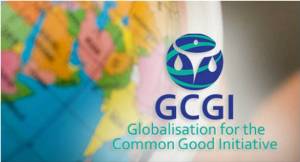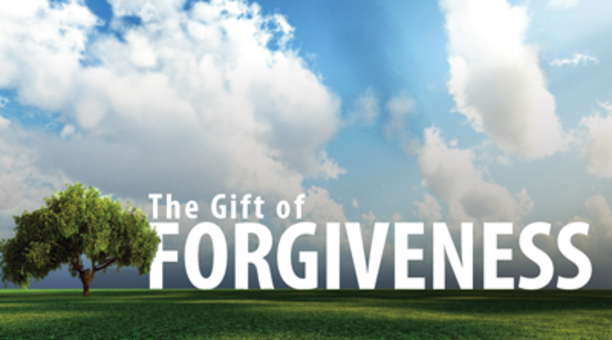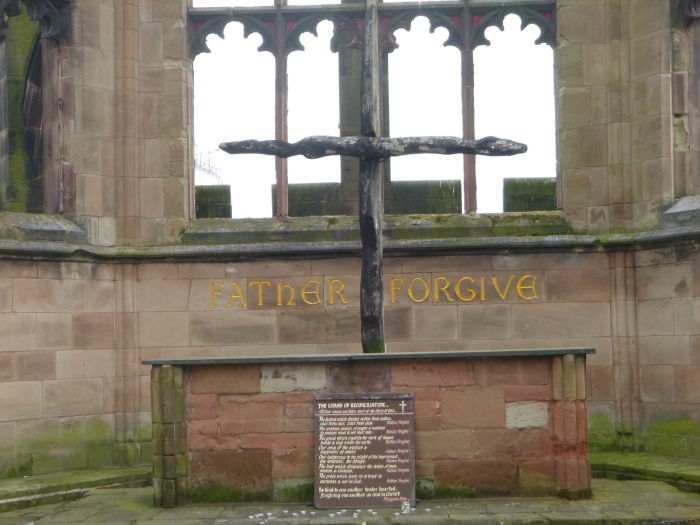Updated on 21 September 2015 and on 19 December 2015

Photo: un.org
"I call on all warring parties to lay down their weapons and observe a global ceasefire. To them I say: stop the killings and the destruction, and create space for lasting peace."- UN Secretary-General Ban Ki-mmon
The theme of this year’s (2015) commemoration is “Partnerships for Peace – Dignity for All” which aims to highlight the importance of all segments of society to work together to strive for peace.
Background
A UN resolution established the International Day of Peace in 1981 to coincide with the opening of the UN General Assembly. The first Peace Day was celebrated in 1982 and was held on the third Tuesday of September each year until 2002, when September 21 became the permanent date for the International Day of Peace. The assembly decided in 2001 that the International Day of Peace should be annually observed on September 21 starting from 2002. By setting a fixed date for the International Day of Peace, the assembly declared that the day should be observed as a day of global ceasefire and non-violence.
By creating the International Day of Peace, the UN devoted itself to worldwide peace and encouraged people to work in cooperation for this goal. Since its inception, Peace Day has marked personal and planetary progress toward peace. It has grown to include millions of people worldwide and many events are organized each year to commemorate and celebrate this day.
The theme of this year’s (2014) International Day of Peace is the “Right of Peoples to Peace”. This anniversary offers a unique opportunity to reaffirm the United Nations commitment to the purposes and principles upon which the Organization was founded. The Declaration on the Right of Peoples to Peace recognizes that the promotion of peace is vital for the full enjoyment of all human rights.
Since its inception, Peace Day has marked our personal and planetary progress toward peace. Events range in scale from private gatherings to public concerts and forums where hundreds of thousands of people participate. Anyone, anywhere can celebrate Peace Day. It can be as simple as lighting a candle at noon, sitting in silent meditation, or doing a good deed for someone you don’t know. Or it can involve getting your co-workers, organization, community or government engaged in a large event. You can also share thoughts, messages and pictures to commemorate Peace Day on social media. When millions of people in all parts of the world come together for one day of peace, the impact is immense and does make a difference. Peace Day is also a day of ceasefire—personal or political. Take the opportunity to make peace in your own relationships.
Secretary-General's 100-day Countdown Message (13 June 2013)
‘Today marks the 100-day countdown to the International Day of Peace, when the United Nations calls on nations, communities and individuals to renounce conflict and promote harmony.
Over the coming 100 days we need to unite as a human family to deliver the right to peace by encouraging fighters to lay down their arms. Let us stand in solidarity with the civilians killed by terrorism and war, the traumatised families whose homes and futures lie in ruins, the countries whose development has been set back by decades.
History has shown that, no matter how fierce, conflict can end, peace can prevail and reconciliation can triumph. On 21 September, at concerts around the world -- in major cities and small towns, in conflict zones and peaceful communities – people will broadcast this essential message. They will celebrate the value of human diversity and the strength of our unity.
As we start the countdown, I urge every peace-loving person to engage with their friends and neighbours, their community organizations and governments. Together, let us demand the right of peoples to peace.’- Ban Ki-moon
The idea of world peace, to many people across the world, seems an idealistic fantasy. The mainstream media portraits a world a washed in violence, divisions, hatred and threat of mutual oblivion. We see the continuing and deepening crises and terrible suffering.
However, it is important to note that most of the world’s ‘peace work’ is unreported – in the countless NGOs, Civil Societies and many thousands of volunteers working to address the underlying causes of conflict, in communities at every scale to create more resilient peaceful lives; and in each of us who rejects violence, committed to a path of inner peace, or just simply ‘touches peace’ every moment in the beauty of nature, the sun-rise and the sun-set, the birds and butter flies, the play of children, the wonder of a star-filled sky. Then, of course, there is the peace work of the Mother Earth itself, quietly transforming from one season to the next, growing, giving, regenerating.
I salute all those unsung heroes working hard as peace makers and peace builders to create a more harmonious, better and just world.
At Globalisation for the Common Good Initiative (GCGI) we are grateful to be contributing to that vision of a better world, given the goals and objectives that we have been championing since 2002. For that I am most grateful to all our friends and supporters that have made this possible.
The Story of the GCGI

Why Love, Trust, Respect and Gratitude Trumps Economics: Together for the Common Good
Kamran Mofid, Founder, Globalisation for the Common Good Initiative (GCGI)
(Written to Commemorate the 10th Anniversary of the GCGI)
Oxford 2002 to Oxford 2012
Portrait of a Great Journey for the Common Good
We live in difficult and troubling times, facing unprecedented global challenges in the areas of climate change and ecology, finance and economics, hunger and infectious disease, international relations and cooperation, peace and justice, terrorism and war, armaments and unprecedented violence. It is precisely in times like these – unstable and confusing though they may be – that people everywhere need to keep their eyes on the better side of human nature, the side of love and compassion, rather than hatred and injustice; the side of the common good, rather than selfishness, individualism and greed.
People need to see that there are serious alternatives to the world’s present failing policies, rules and institutions, and that there are likeminded global citizens who share a vision of hope and common values that can lift them out of the deep sense of powerlessness and despair that is now affecting so many parts of the world.
Guided by the principles of hard work, commitment, volunteerism and service; with a great passion for dialogue of cultures, civilisations, religions, ideas and visions, at an international conference in Oxford in 2002 the Globalisation for the Common Good Initiative (GCGI) and the GCGI Annual International Conference Series were founded.
The Globalisation for the Common Good Initiative Annual Conference series have ranged far across the world through Oxford, Saint Petersburg, Dubai, Nairobi/Kericho, Honolulu, Istanbul, Melbourne, Chicago and Thousand Oaks, California. The 10th Annual Conference, once again, is returning to Oxford in September 2012.
The GCGI conferences have created and continue to create an ever-widening international community of scholars, researchers and experts, forging links and establishing dialogues across national, cultural, religious, and academic boundaries, and putting into practice the movement’s core philosophy: that globalisation need not be defined merely in terms of impersonal market forces, but can be a power for good, building spiritual bonds that can unite humanity and bring different cultures, civilisations, faiths and academic disciplines closer together.
Today the GCGI is considered a leading progressive think tank, producing cutting-edge research and innovative policy ideas for a just, democratic and sustainable world. For the last 10 years, GCGI has helped shape the progressive thinking that is now the political centre ground. Independent and radical, we are committed to combating inequality, empowering citizens, promoting social responsibility, creating a sustainable economy and revitalising democracy. Best known for our influential work on Globalisation for the Common Good, Business Ethics and Corporate Social Responsibility, Value-led Economics and Business Education, Ecology, Environment& Sustainable Development, Interfaith Dialogue and more, we now have significant cooperative projects with a number of universities, think tanks and civil societies in many countries around the world. GCGI’s media programme and its influential online Journal, Journal of Globalisation for the Common Good, hosted at Purdue University, has since its inception in 2005 made significant contribution in furthering progressive goals in education and media policy.
What the GCGI seeks to offer- through its scholarly and research programme, as well as its outreach and dialogue projects- is a vision that positions the quest for economic and social justice, peace and ecological sustainability within the framework of a spiritual consciousness and a practice of open-heartedness, generosity and caring for others, by encouraging us all to know and to serve the common good.
The GCGI is a non-profit making initiative with no formal income, capital, seed money, or endowment. It has no bank account, cheque book, team of fund-raisers and accountants. This self-sustaining funding mechanism has been a key lynch pin of our independence and integrity. At no point in our history has the GCGI been so reliant on external sources that if external funding is removed, the GCGI cannot continue.
The most precious capital that the GCGI has had is the calibre of its friends and supporters, including the universities that have hosted its annual conferences, and more, which with their love, trust and goodwill have committed themselves as partners in shared vision, to support the GCGI in a spirit of moral, spiritual and intellectual collaboration to further its work.
Reflecting on our shared journey for the common good, it is amazing to me that ten years have gone by so quickly. What began as a simple idea to share the practical wisdom of the common good, dialogue, love, generosity, kindness, and more has blossomed into an internationally recognized non-profit organization that has become a leading resource “inspiring people to do great things for the common good”.
From the very beginning, I knew that we will succeed, if we can reach-out to everybody around the world and be an all volunteer network of individuals, while approaching our growth organically and focusing on our vision and mission.
As you might imagine, in the initial days when we began sharing our vision of doing things for the common good, we were met with a great deal of scepticism, apprehension, and thankfully, some warm embraces and love. We were energized by all of those early experiences and continued to find ways to build ideas, programmes and initiatives around our main message and theme of Globalisation for the Common Good.
Perhaps our greatest accomplishment has been our ability to bring Globalisation for the Common Good into the common vocabulary and awareness of a greater population along with initiating the necessary discussion as to its meaning and potential in our personal and collective lives.
In the last ten years and so, similar to all those who have taken a similar value-based-journeys of self-discovery, I, too, have also realized that, “From the great oceans, vast plains and highest mountains that sustain our fragile and vital ecosystem, to our village friends and city dwellers that bring meaning to our common journey, we are quickly realizing that everyone and everything is interconnected and interdependent.
With each passing day, it is also increasingly evident in every corner of our world that great change is upon us and that by standing together in mutual respect, honour and dignity for one another, we will answer this call with creative, viable and sustainable solutions.
We must take the necessary steps now to reach out to our fellow humans and extend our hand in forgiveness, acceptance and genuine friendship. Our choices shall be made from compassion while embracing the richness of our amazing diversity. The love and acceptance we have for ourselves will be the source of our strength to assist others. Together we can and will make a difference through love.
These necessary changes may challenge us to the depths of our courage and test the very essence of our personal character, yet with each ensuing breath we shall remain in love and this love will be the very basis of a new era of peace and abundance, equality and goodwill for all”.
In short, at Globalisation for the Common Good Initiative we are grateful to be contributing to that vision of a better world, given the goals and objectives that we have been championing since 2002. For that we are most grateful to all our friends and supporters that have made this possible.
Therefore, yes, it is true: “Love, Trust, Respect and Gratitude Trumps Economics”.
Read more:
Secretary-General's 100-day Countdown Message for the International Day of Peace, 21 September 2013
International Day of Peace, 21 September
Now, for sure, the Big Question is: Are you yearning for Peace?
If yes, then it is much better to light a candle than to curse the darkness.
Give yourself and the world the gift of forgiveness

Photo: africase.lds.org
“Father, Forgive” - these two words which I discovered at the ruins of Coventry Cathedral in 1973 changed the course of my life.
This is the story I must tell.

Photo: Anne Mofid
Read the story:
Coventry and I: The story of a boy from Iran who became a man in Coventry
